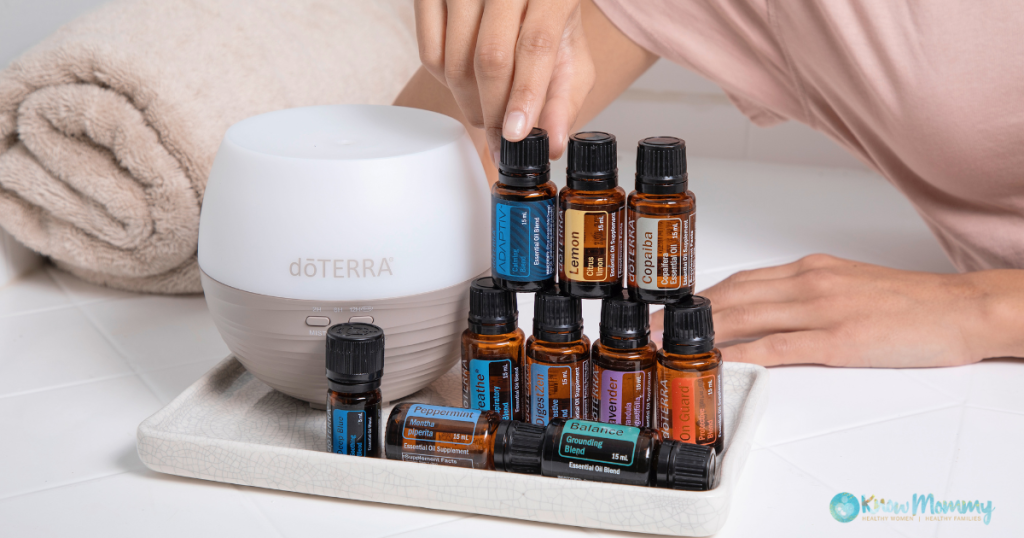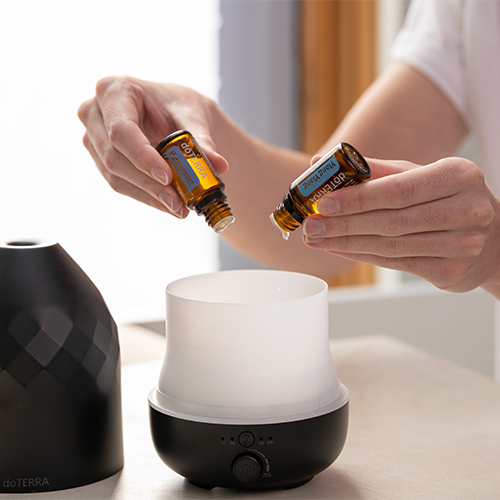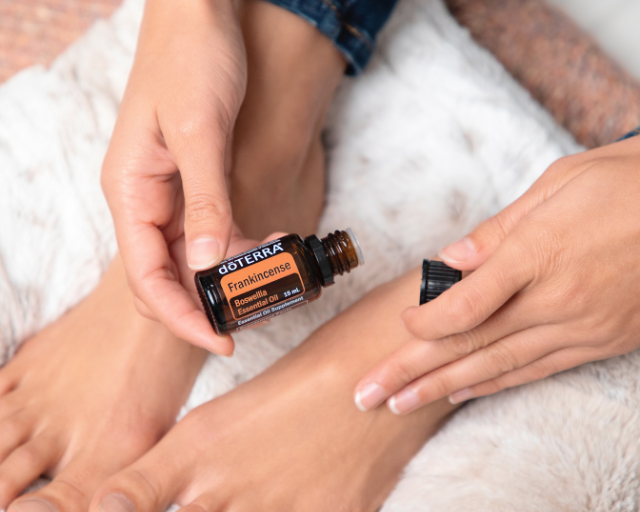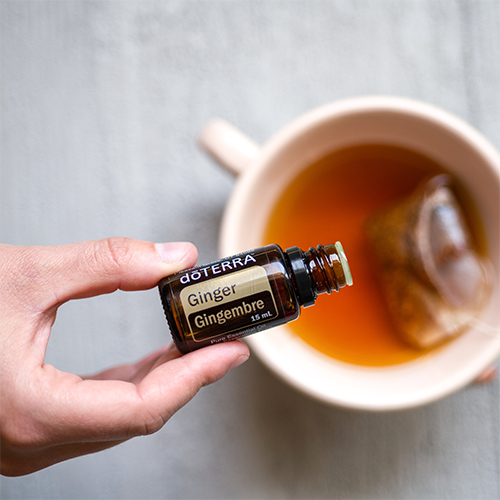Supporting Autism with Essential Oils: A Guide to Safe and Effective Use
Learn how essential oils can be used to promote relaxation, reduce stress, and improve overall health and well-being for autistic individuals and their families.

As a mother of an autistic child, I am always on the lookout for ways to support my child’s health and well-being. One tool that has been particularly helpful in our journey is essential oils. Essential oils have been used for centuries for their therapeutic properties. They are known to have anti-inflammatory, antiseptic, and analgesic properties, among others. When used in the right way, essential oils can help to support overall health and well-being, and I have found them to be a valuable tool in supporting my child’s health.
When my child was diagnosed with autism, I was overwhelmed with the amount of information out there. It seemed like every day there was a new therapy or treatment that promised to help with autism. But as I delved deeper into the world of natural health, I discovered the power of essential oils.

What are essential oils?
Inside many plants—hidden in roots, seeds, flowers, fruit, or bark—are concentrated, highly potent chemical compounds. These naturally occurring compounds are essential oils. They are the essence of a plant, a gift from the earth, distilled and prepared for you to bring the power of nature into your home.
Essential oil benefits vary from plant to plant, within botanical families, and even from species to species. The delicate ratio of aromatic constituents found in any given essential oil are what make its aroma unique and give it specific benefits. Essential oils give a plant its scent, protect it from hazardous environmental conditions, and can even assist it with pollination. In addition to their intrinsic benefits to plants and their beautiful fragrance, essential oils offer a myriad of uses and benefits for your home and family.
What are some of the benefits?
Essential oils can help to promote relaxation, reduce stress, and improve mood. They can also help to improve sleep, boost immunity, and enhance cognitive function. In addition, certain essential oils are believed to have a positive impact on the nervous system, which can be particularly beneficial for autistic individuals.
Before I dive into which oils we use and why, it is important to note that essential oils should not be used as a substitute for medical care. If you have any concerns about your or your child’s health, please consult a qualified medical practitioner (although many are not educated on essential oils).
Here are some essential oils that are recommended for autism:
- Chamomile Oil: Chamomile oil is known for its soothing properties and can help to promote relaxation and calmness. It is also believed to have anti-inflammatory properties that can help to reduce inflammation and pain.
- Frankincense Oil: Frankincense oil is known for its ability to promote emotional balance and reduce stress. It is also believed to have anti-inflammatory properties that can help to reduce inflammation and pain.
- Peppermint Oil: Peppermint oil is known for its ability to improve cognitive function and mental clarity. It is also believed to have a cooling effect that can help to reduce inflammation and pain.
- Vetiver Oil: Vetiver oil is believed to have a grounding effect on the nervous system and can help to promote relaxation and calmness. It is also believed to have anti-inflammatory properties that can help to reduce inflammation and pain.
- Copaiba Oil: Copaiba oil’s anti-inflammatory properties, calming effect, pain relief, and immune system support make it a promising tool for managing anxiety, reducing inflammation, and improving overall health.
- Lavender Oil: Lavender oil is one of the most commonly used essential oils for relaxation and stress relief. It is believed to have a calming effect on the nervous system and can help to reduce anxiety and promote restful sleep. (It should be noted that for some lavender can have the opposite effect)
- DigestZen: A blend of essential oils known for their digestive and calming properties which make it a useful tool for managing gastrointestinal issues.
What are the ways to use essential oils?
There are three main ways to use essential oils: aromatically, topically, and internally.

Aromatically: One of the most common ways to use essential oils is aromatically, which involves inhaling the oils through the nose or mouth. This can be done by diffusing essential oils in a diffuser, adding a few drops to a bowl of hot water and inhaling the steam, or simply smelling the oil directly from the bottle. Aromatherapy has been shown to have a range of benefits, including reducing stress and anxiety, improving mood, and promoting relaxation.

Topically: Another way to use essential oils is topically, which involves applying the oil directly to the skin. When using essential oils topically, it is important to dilute the oil with a carrier oil, such as coconut oil or jojoba oil, to prevent skin irritation. Essential oils can be applied to the skin for a range of purposes, including reducing inflammation, relieving pain, and improving skin health.

Internally: While not all essential oils are safe for internal use, some can be ingested in small amounts for their therapeutic benefits. It is important to note that ingesting essential oils should only be done under the guidance of a qualified healthcare provider, as essential oils can be toxic in high doses. When used properly, ingesting essential oils can be helpful for supporting digestion, boosting the immune system, and promoting overall health and well-being.
When using essential oils, it is important to keep safety in mind. Here are some safety considerations when using essential oils:
- Dilute essential oils before use: Essential oils are highly concentrated and should be diluted before use. They can be diluted with a carrier oil such as coconut oil, jojoba oil, olive oil, hemp oil, etc.
- Test for sensitivity: Before using any essential oil, it is important to test for sensitivity. Apply a small amount of diluted oil to the skin and wait for 24 hours to see if there is any reaction.
- Use high-quality oils: Always use high-quality essential oils that are pure and free of additives. (doTERRA is the brand I stand behind, use and advocate for.)
- Store oils properly: Essential oils should be stored in a cool, dark place to prevent oxidation and degradation.
To learn more about essential oil safety click here.
In conclusion, essential oils can be a useful tool in supporting autistic individuals and their families. When used correctly and safely, essential oils can help to promote relaxation, reduce stress, and improve overall health and well being. Remember to consult a qualified medical practitioner if you have any concerns about your or your child’s health.

If you are interested in learning more about how essential oils can support autistic individuals and would like personalized health coaching support, I invite you to reach out to me – as a mother of an autistic child, I am passionate about helping families navigate the complex world of natural health and create a plan that supports their child’s health and well-being.
**The information provided in this blog post is for educational purposes only and is not intended as a substitute for professional medical advice, diagnosis, or treatment. Always seek the advice of a qualified healthcare provider before using essential oils or any other natural remedy. Additionally, essential oils should always be used with caution and under the guidance of a healthcare professional, especially in individuals with medical conditions, allergies, or who are taking medications.
copyright © Know Mommy

